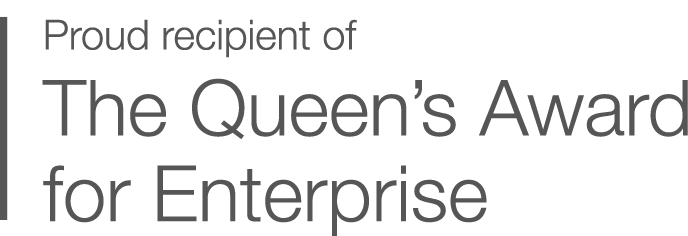Iron has many health benefits for your body. This essential mineral processes food, creates blood cells, and provides energy. Find out how to spot the signs of deficiency and make the most of the health benefits of iron.
Table of Contents:
- What is Iron?
- 11 Iron Benefits
- 5 Signs of Iron Deficiency
- How to Increase Your Iron Intake
- 8 Sources of Iron
What is Iron?
Iron is an essential mineral needed to create energy and transport oxygen around your body. Your body needs iron to process food and provide energy, as well as to help create red blood cells. Red blood cells carry oxygen around the body, so making sure you have enough iron is essential. Some people may consider iron supplements to experience the benefits of iron and avoid the side effects that come with low nutrient levels.
11 Iron Benefits
Iron benefits your health in vital ways including your energy levels. Ensuring you have the recommended dosage of iron can help to ensure you see these iron benefits and avoid health problems from low iron. The benefits of iron include:
- Encourages a healthy pregnancy. For this reason, iron may be included in pregnancy supplements
- Restores sleep. For this reason, iron may be included in sleep supplements
- Proper red cell production
- Normal oxygen transportation
- Reduces fatigue
- Supports focus
- Maintains stamina
- Encourages athletic performance
- Improves muscle endurance
- Reduces bruising
- Supports the immune system
All of these benefits of iron help to support your body and encourage a healthy lifestyle. Ensuring a proper dose of iron can help you see these iron benefits and avoid deficiency. According to the NIH, the recommended daily guidelines for iron are:
- For an adult male (aged 19-50): 8mg per day
- For an adult female (aged 19-50): 18mg per day
- For all adults aged 51+: 8mg per day
Supplementing minerals to these guidelines can help encourage you to experience the benefits of iron.
5 Signs of Iron Deficiency
Iron deficiency can affect anyone whose mineral levels become too low. It can cause harmful side effects and means you don’t reap any iron benefits. People with malabsorption issues, are pregnant, or are athletes may be more at risk. Taking the required amount of iron can help you avoid these side effects and see iron benefits. There are signs to look out for if you are concerned about your levels. Some signs of low iron include:
- Tiredness and Lack of Energy - One of the benefits of iron is its role within the red blood cells which carry oxygen around the body. However, if you don’t have enough iron or are suffering from iron deficiency, you may be tired and fatigued. Your body needs this oxygen to make energy to get you moving. In this case, your body won’t be making enough energy. Taking energy supplements, which include iron, can encourage a natural energy boost over time and help you see the benefits of iron.
- Craving non-food items - Known as ‘pica’, iron deficiency can cause the feeling that you want to eat things that are not food. It’s not clear why iron can affect this, but it can be a sign of deficiency. It often affects children or those who are pregnant. For kids, taking children’s supplements can help to keep their vitamin levels at their best to avoid deficiencies and their symptoms, as well as see the benefits of iron.
- Pale Skin - While not on its own a symptom of deficiency, people with iron deficiency may appear paler than usual. This is because the red blood cells are reduced, and so fewer reach the skin and leave the person with a paler, less-rosy complexion. Deficiency can also affect your skin in other ways. You may experience dry, itchy skin and brittle nails. Taking skin supplements can help you boost your skin with the vital nutrients it needs to look and feel healthy.
- Shortness of Breath - Those with iron deficiency may also experience a shortness of breath. This is due to one of the benefits of iron being carrying oxygen to your muscles and cells. If your iron levels are low, your body can’t make enough red blood cells to transport this oxygen, leaving you with possible symptoms of shortness of breath and without seeing the benefits of iron.
- Noticeable Heartbeats - Iron benefits your heart health thanks to its role surrounding red blood cells and oxygen transportation. Otherwise known as heart palpitations, noticeable heartbeats can be a sign of iron deficiency. This means the heart is working harder for blood to reach every part of the body. People suffering from an iron deficiency may have the feeling that their heartbeat is more noticeable or quicker than usual.
Seek medical advice from your medical practitioner or other health professional if you think you may have any of these signs of low iron and before taking supplements.
Haemochromatosis, a condition that causes iron overload, also has similar symptoms to deficiency. Checking your levels is essential to ensure you experience essential iron benefits. That way you can help ensure you experience the benefits of iron.
How to Increase Your Iron Intake
Increasing your mineral intake and experiencing iron benefits is easier than ever thanks to BetterYou. With hassle-free, pill-free supplements, you can spray your way out of deficiency and support your body’s mineral needs. One of the benefits of iron is that it can be made into an oral spray. We have developed iron sprays to make maintaining your levels easy.
Pill-free supplements can help you avoid the side of effects of traditional iron supplements which can be tough on the digestive system. BetterYou’s iron supplements are sprayed into the mouth and are an effective alternative to tablet-form supplementation. Choose between a natural baked apple or pomegranate flavor and spray your way to experiencing the benefits of iron today.
8 Sources of Iron
As well as taking supplements, you can support your iron intake with natural sources of the mineral. Encouraging a balanced diet with sources of iron can help you experience the benefits of iron. Sources of iron include:
- BetterYou’s Iron Supplements
- Dark-green leafy vegetables like watercress and curly kale
- Cereals and bread with extra minerals in them (fortified)
- Meat
- Dried fruit like apricots, prunes and raisins
- Pulses (beans, peas and lentils)
- Tofu
- Seeds & nuts
Reducing your intake of tea, coffee, milk and dairy, and high levels of phytic acid can also help you see the benefits of iron. This is because these products naturally reduce the amount of minerals your body can absorb. Including these foods, alongside supplements, can help you reap the benefits of iron and avoid a vitamin or mineral deficiency.




